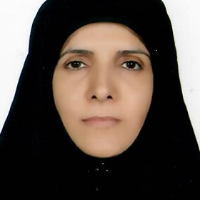The Effect of Implementing a Family-centered Empowerment Model on the Quality of Life of Parents of Premature Infants Admitted to a Neonatal Intensive Care Unit
Infant hospitalization in the intensive care unit is a psychological crisis for the family that causes stress and disability for the family. In critical situations, the knowledge of the healthcare team is devoted to patient care, while it is necessary to emphasize the needs of the family. This study aims to determine the impact of family-centered empowerment model on quality of life of premature infants parents’ were admitted to the neonatal intensive care unit.
This quasi-experimental controlled study was performed on 84 parents with preterm infants admitted to the intensive care unit. Samples were continuously targeted in both intervention and control groups. They received training sessions in four steps and 8 sessions. The ability of the subjects was also assessed by the competency questionnaire (including three dimensions; threat perception, self-efficacy and self-esteem). Demographic questionnaire, and WHOQOL-BREF quality of life questionnaire once at the beginning of the study and again one month after completion. Intervention sessions were completed and the data were analyzed using Chi-square, independent t-test, analysis of variance and Spearman and Shapiro-Wilk correlation coefficient using SPSS software.
There was no significant difference between the two groups in terms of demographic characteristics and baseline competency scores (self-efficacy, self-esteem, severity and sensitivity) and quality of life. Comparison of total quality of life score (P=0.041) in the intervention group was significantly higher than the control group. In-group comparison, empowerment scores [self-esteem, self-efficacy (P<0.001)] of both groups and intensity and sensitivity scores (P<0.001) showed a significant increase only in the intervention group. In terms of quality of life, in the psychological dimension (P=0.042), social (P=0.003), environmental and total scores (P<0.001) in the intervention group and in the total score dimension (P=0.41) There was a significant increase in environmental performance (P<0.001) in the control group.
The family-centered empowerment model has improved some quality of life factors. , But further studies are needed to reach a definitive conclusion in this regard. It is suggested that future researchers strengthen the family-centered empowerment program in less effective dimensions. Further studies should also be performed on the use of family-centered empowerment program to empower pregnant women with the possibility of preterm delivery and its effectiveness after delivery.
- حق عضویت دریافتی صرف حمایت از نشریات عضو و نگهداری، تکمیل و توسعه مگیران میشود.
- پرداخت حق اشتراک و دانلود مقالات اجازه بازنشر آن در سایر رسانههای چاپی و دیجیتال را به کاربر نمیدهد.



